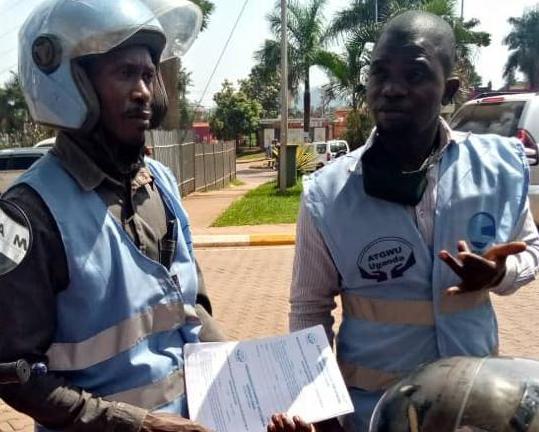
2 minute read
What has been the impact of Covid-19 on informal transport workers?
The Covid-19 pandemic has had a devastating impact on many millions of informal transport workers throughout the world. In many countries, public transport was effectively shut down and workers were left with little or no income. The International Labour Organization (ILO) estimates that the first month of the crisis resulted in a 60 percent decline in the earnings of informal workers globally. In Africa and Latin America, where the economic impact of lockdown and containment measures was particularly acute, the ILO estimated an 81 percent decline in earnings1 .
You realize that in the informal economy in kenya – and in many parts of east africa – they live hand to mouth… and the restricted movements mean no livelihoods at all – livelihood has been destructed, because they have nothing to eat by the end of the day.”
Dan Mihadi, general secretary, Transport and Allied Workers’ Union, Kenya
In countries where transport services have resumed, vehicle crews are particularly exposed to infection, due to the public-facing nature of their work. Such risks are often compounded by inadequate health and safety standards and limited access to personal protective equipment (PPE).
The majority of informal transport workers do not have access to income protection schemes, so they are left with the impossible dilemma of working in dangerous conditions or losing their incomes entirely. As noted by the ILO:
“To die from hunger or from the virus” is the all-too-real dilemma faced by many informal economy workers.’
ILO. 2020. Brief: COVID-19 crisis and the informal economy, p1 As with all crises, it is the most vulnerable in the workforce who are hit hardest and, as the most precarious and exposed workers, women have been particularly adversely affected by the pandemic. They also shoulder the additional burdens of unpaid care responsibilities, often including the need to provide food for their families, even when they do not have an income.
Informal workers are more scared of dying of hunger than they are of catching the disease. women have the additional job of bringing food to the table and they eat last, after their husband and children. when food is scarce, maybe they don’t eat at all.”
Geeta, women’s advocate, NETWON, Nepal
Young workers (15-24 years old) are also particularly vulnerable, given their reliance on the informal economy for employment. It is reported that 84.4 percent of young workers in developing countries are informally employed, rising to 94.9 percent in Africa2 .
As the government suspended the operation of public utility jeepneys in the Philippines, it caused the loss of income to young workers in the public transport sector. It really affected the young workers in our sector because most of them were relying on daily income from jeepney to provide the needs of their families.”
Giovanni, national youth coordinator, NCTU, Philippines








